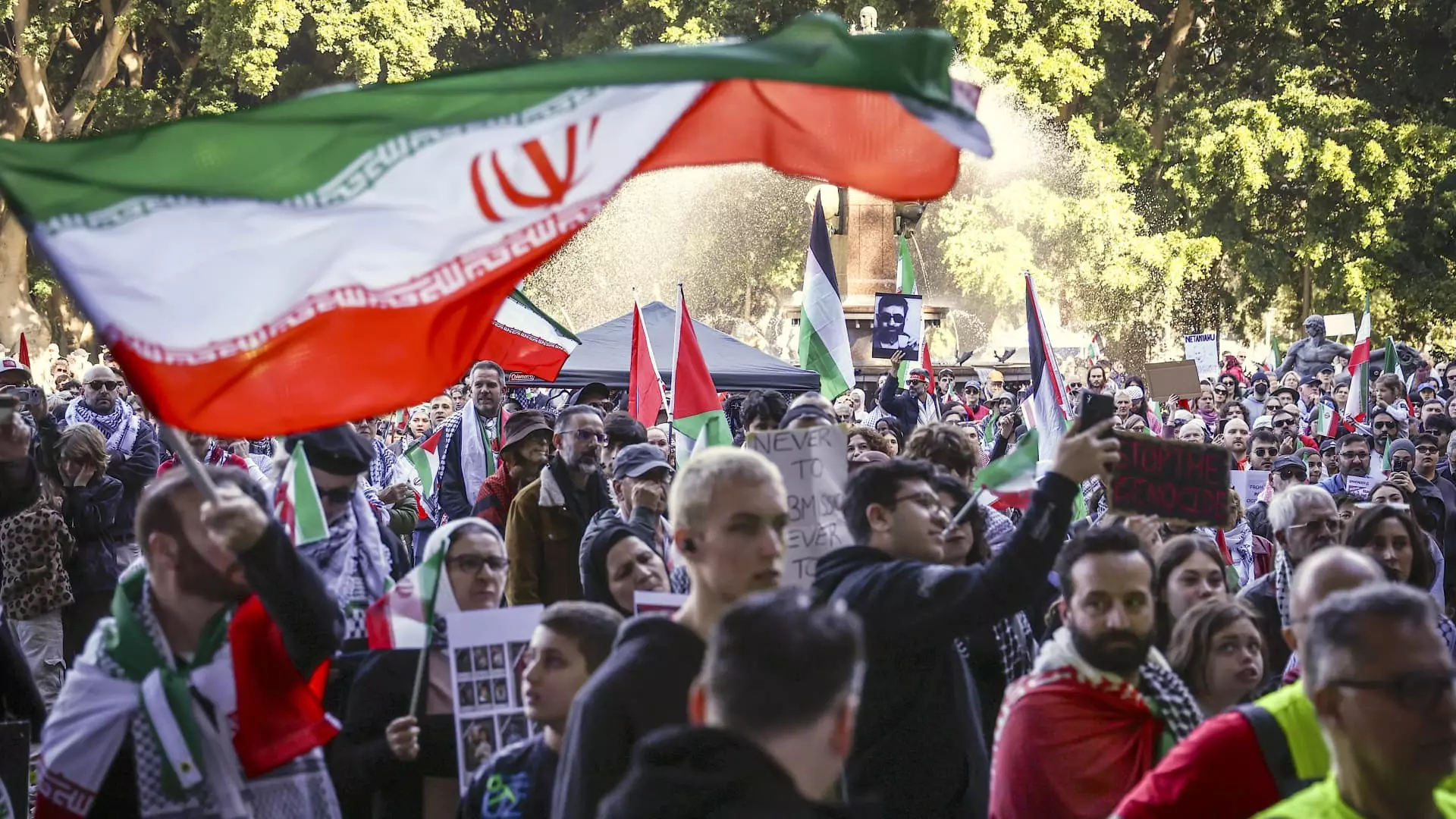The recent escalations between the United States and Iran represent a dangerous inflection point in international relations, evoking a justification for aggression cloaked in the guise of security. On Sunday, Iran’s Foreign Minister, Abbas Araghchi, described the U.S. military strikes on pivotal nuclear enrichment facilities as “outrageous” and a flagrant infringement of sovereignty. This declaration encapsulates the existential dread that pervades not only Tehran but also the broader Middle Eastern landscape. The U.S. government, through its recent actions, has triggered a chain of reactions that could spiral out of control, transforming a routine geopolitical standoff into an all-out war.
The historical backdrop of U.S.-Iranian relations is replete with miscalculations and film noir-style plot twists. The U.S. strikes on three major nuclear sites—Fordo, Natanz, and Isfahan—marked the first infusion of direct military action, bringing a new layer of complexity and volatility. Araghchi articulated an outcome of “everlasting consequences,” suggesting that international actors must now contemplate the precarious balance of power in an already unstable region.
The Cycle of Retaliation
The conflict has devolved into a vicious cycle where both Iran and Israel are locked in a tit-for-tat exchange that only elevates regional tension. Iran, retaliating with its 20th wave of strikes against Israeli military positions, exemplifies an urgent need to defend its sovereignty. Yet, these acts of aggression, while framed as defensive, risk entangling the entire region in a broader conflict, with both strategic and humanitarian ramifications.
Israel, anticipating further Iranian offensives, has commenced missile attacks in response, which underlines a deteriorating situation that requires colossal restraint. The international community sits on the edge, with critical voice coming from leaders of neighboring countries, who have expressed deep concern over the unfolding situation. Saudi Arabia, Iraq, Qatar, and Oman each caution against escalating tensions, recognizing that the face-off threatens not just Iran and Israel but the entire Middle East.
Diplomacy on the Brink
Perhaps the most disconcerting element of this crisis is the apparent breakdown of diplomatic efforts. Araghchi’s assertion that U.S. actions have extinguished any prospect for negotiation is a glaring indictment of the current American strategy. At a moment when the voices for peace and dialogue should be amplified, the words of U.S. President Donald Trump—confidently proclaiming a “spectacular military success”—sound less like an affirmation of security and more like a drumbeat for war. His rhetoric, embellished with bravado, reflects a stark disconnect from the realities on the ground, where hundreds of lives have already been lost due to the ascending violence.
The sentiment within Iran and throughout the region seems to signal a collective understanding that the latest U.S. strikes have not only stifled diplomatic avenues but have incited a level of animosity that surpasses centuries-old grievances. Leaders, from Tehran to Beirut, recognize the urgency for serious negotiations, but if the U.S. persists in applying military pressure, the prospect of dialogue will dwindle rapidly.
A Call for Global Awareness
International actors, including the United Nations, have expressed profound concern regarding the escalation of military operations. Secretary-General Antonio Guterres has aptly warned that the conflict could spiral out of control, crystallizing the necessity for a multilateral approach to de-escalation. The risks posed by unchecked military actions echo through the chambers of diplomatic history—remembering the missteps that led to unrelenting conflicts, mass casualties, and destabilization in previous eras.
What we are witnessing is a precarious moment that transcends traditional political metrics, where the stakes lie not merely in regional supremacy but in the very essence of global stability. The invocation of military power, as the ultimate arbiter of international relations, threatens to undermine years of painstaking negotiations and efforts aimed at ensuring peace. It is imperative that world leaders reconnect with reality; coercive tactics will yield little more than transient victories while nurturing an environment ripe for infinite retaliation.
In the face of chaos, let there be a clarion call to prioritize diplomatic interventions over displays of military force. The world cannot afford further escalations when the cost is measured in lives, futures, and the fragile architecture of global peace.

Leave a Reply